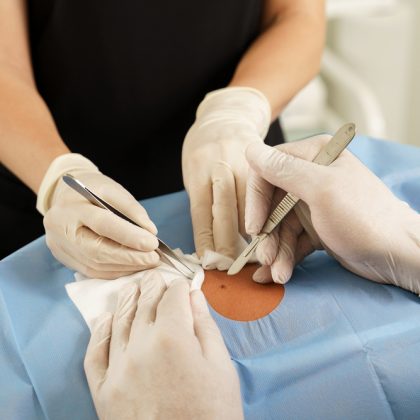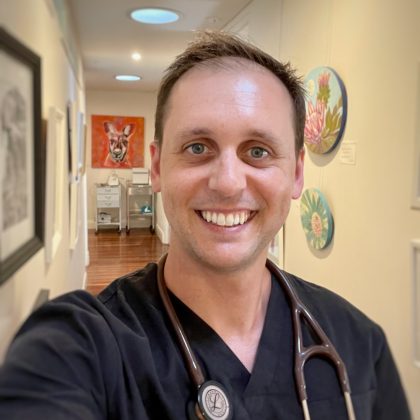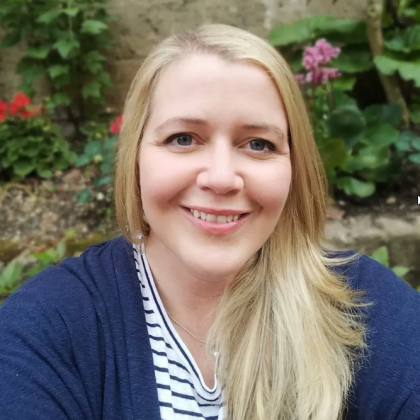
Most diagnosed skin cancers will need some form of surgical treatment. Our practice is fully equipped to carry out both simple & complex skin cancer removal under local anaesthetics.
What surgical skin cancer treatments do you provide?
Our doctors are able to perform complex skin flap reconstructions and skin graft repairs when required and they are assisted by our surgical nurses –Angela Sanders, Stephanie Beaty and Natasha Van Odyck. Our staff will help put you at ease from the moment you enter the clinic and ensure you fully understand the procedure, what to expect and the after-treatment care involved.
Caring for your skin after skin cancer removal surgery
Our patients’ recovery is of great importance to us and we always strive to achieve the best possible outcome for our patients. Our dedicated team will ensure you are well cared for before and after your surgery. Following any surgical treatment, your wound will be dressed appropriately and you will receive detailed post-operative instructions on how to care for the area and when to return for follow up.
Simple Excision
Most skin cancers can be surgically removed by “standard elliptical excision”. An appropriate margin of normal skin around the cancer is marked and an elliptical shaped excision is made, and defect sutured (stitched) together resulting in a linear scar. The specimen is then sent off for pathological.
Flap Surgery
Sometimes certain skin cancers cannot be removed & the resulting defect by simple elliptical excision mostly due to size and location – particularly on the face, scalp and limbs. In those circumstances, a complex flap repair of the defect would be required. This involved creating a flap of the adjacent skin and mobilising it into the defect created by removal of the skin cancer.
Graft Surgery
On occasions, a different plastic surgical technique, called skin grafting, may be necessary to close certain defects following excision of skin cancers. This technique involves harvesting healthy skin from a separate donor site and then transferring it to the site of the skin cancer excision (recipient site).
Cautery and Curettage – “C&C”
“C&C” is another surgical technique used to treat certain type of superficial skin cancers – such as superficial BCC and superficial SCCs. It can also be selectively used to treat very small early nodular BCCs. This technique involves removing the cancer in a scraping action with a small, spoon shaped surgical instrument known as a curette and then cauterising the area to stop bleeding and also treat any residual skin cancer cells not removed by cautery



